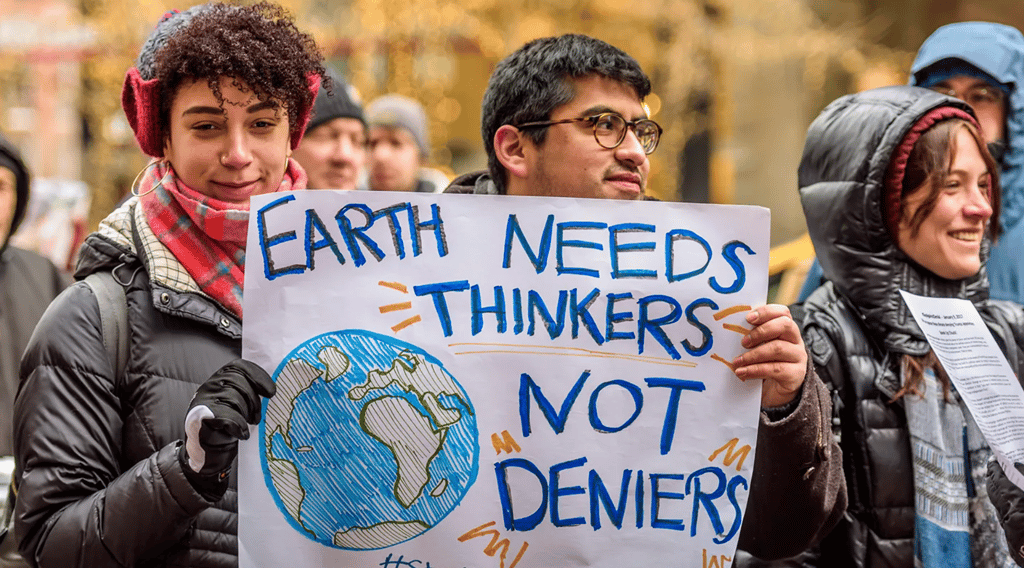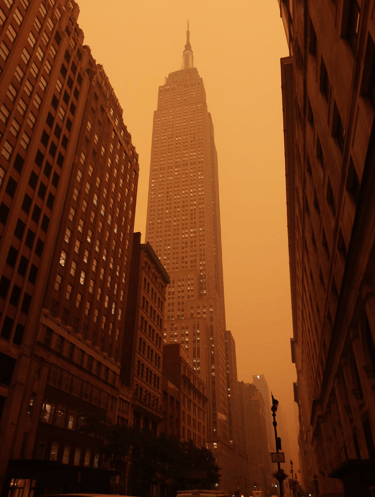Why Should I Care About Climate Change? It Doesn’t Affect Me
Are you willing to live in a place like this? Breath air that looks like this?


First of all, it does. If not now, then it will in the future. “It is inevitable, or should I say I am inevitable,” Thanos said in his monologue, as he brought forth his arm and snapped his fingers, finally fulfilling his wish of putting everything in the universe into balance. The man believes that resources are finite and by getting rid of half of the creatures, the rest will flourish. He was framed up to be the villain by Marvel, but really, who is the villain here? The creatures or him?
That, you will have to decide for yourself, but about the tragic ending being inevitable, perhaps, Thanos was right.
Throughout your life, you might have learned about climate change from the optics of “a polar bear starving”, “a bird species goes extinct”, “rainforests being destroyed”, and the line of reasoning that says “the Earth is our house, so we have the responsibility to take care of it”, or “we need to be responsible for the future generations.” However, be honest. Do you feel super motivated and empowered to change how you live listening to those statements? They all feel so……………………………………………….distant.
Now, how about this? Answer the questions below and decide for yourself whether you should care or not.
Are you willing to pay $27,000 to fix your house every time it is flooded by 1 inch?
That is threatening 40 million people in the US right now due to increased rainfall.
How do you feel about waiting longer for trains, coming late to work and having to find another form of transportation?
The widely known most affordable form of transportation in most countries, is already suffering in the UK as “more extreme weather is putting transport infrastructure under ever-greater pressure and making train travel less reliable and less appealing” (Johnston).
How do you feel about your groceries becoming more expensive and more people migrating to your country?
Currently, according to a UN report in Geneva, “soil is being lost between 10 and 100 times faster than it is forming.” This, together with several other factors such as prolonged heatwaves, is threatening the world with a food crisis, raising the price of food and pushing the people in regions that would be heavily affected to migrate to other places. One example of this was when “the number of migrants from El Salvador, Guatemala, and Honduras showing up at the United States’ border with Mexico increased fivefold” from 2010 to 2015 when there were food shortages in their country due to a dry season.
Are you willing to live in a place like this? Breath air that looks like this?
Works Cited:
https://www.youtube.com/watch?v=yxfK4h2iOIw
https://www.youtube.com/watch?v=ux82sOn5W88
https://www.nytimes.com/2019/08/08/climate/climate-change-food-supply.html
https://news.climate.columbia.edu/2019/12/27/climate-change-impacts-everyone/
As apocalyptic as it may look, this is neither a scene taken out of a movie nor an edited photo. This picture shows New York in 2023 when wildfires in Canada got out of control. Though wildfires are a seasonal feature, it was enhanced this time by an unusually dry season with excessive heat due to climate change. Across Canada at that time, there were a total of 414 wildfires, of which 239 got out of control. Climate change is causing wildfires to be more intense than ever.


photo courtesy of David Axelbank/Alamy Stock Photo
Photo courtesy of Pacific Press Media Production Corp./Alamy Stock Photo
